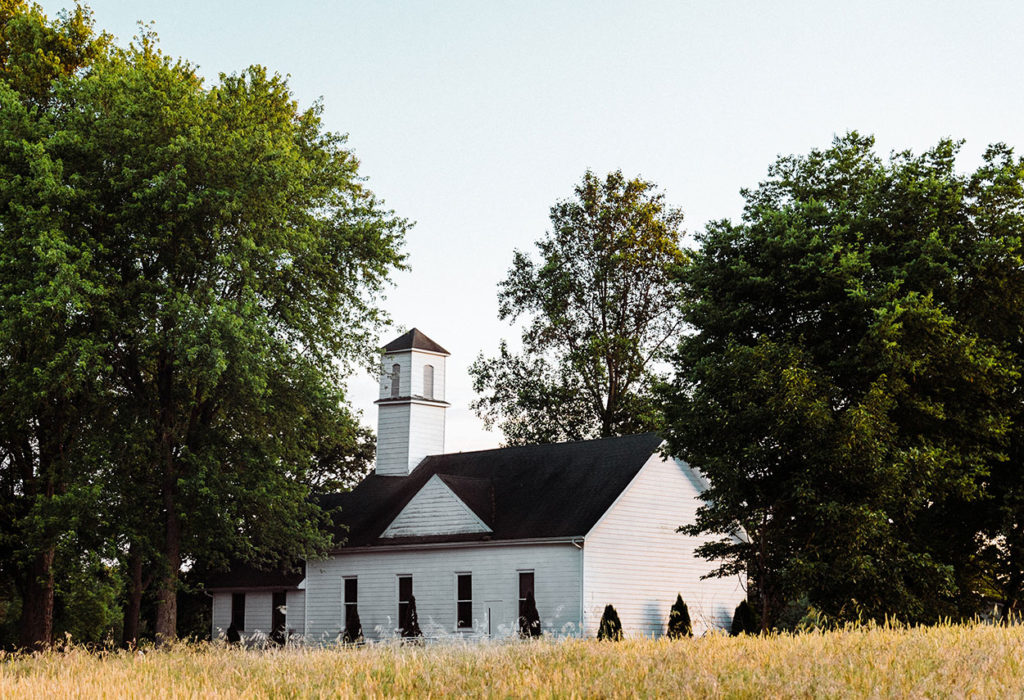Continuing reflection on the emerging paradigm and our experience of Scripture.
I want to take the liberty of sharing a personal reflection that for me illustrates how David Tracy’s (b. 1939) category of story as classic engages our experience and imagination. I reflect on David Tracy’s insights in our June Awe and Wonder newsletter.
Let me first note the distinction between exegesis and eisegesis. Two technical terms used to describe interpretation of scripture. Exegesis literally means, “to lead out of.” Through careful critical study and analysis an interpretation comes out of the text. By this process the text’s interpretation is discovered. Exegesis is considered “objective.” Eisegesis, “to lead into,” describes an interpretation that is subject to ones own agendas and understanding. The text engages the reader to lead into their own ideas, into their own lives. Eisegesis is subjective to the interpreter. Both are ways to interpret scripture. It is important to know the difference. I mention this as a kind of foreword to David Tracy’s understanding of classic stories.
To recap from our newsletter: Tracy describes classics as stories that bear an “excess of meaning,” “resist definitive interpretation” and “function like an event.” They “happen to us.” (They fall into the camp of eisegesis.)
I want to illustrate how a classic story can function, as I understand it, through a recent experience of my own.
The Temptation Story
I was walking with my pup Abbey one morning along Desert Sage Road. We live in a high desert climate. We are surrounded by juniper and sage. The roads in our ‘hood are gravel or dirt. As I was walking, the “temptation story” as it is commonly called, came to my mind. It is the New Testament story of Jesus being “driven” (the gospel of Mark’s word) or “led” (Matthew and Luke’s word) into “the wilderness.” And there he is “tempted by the devil.” (I am not keen on the shorthand description “temptation story.”)
In the story according to Mark, Jesus is confronted with wild beasts. And angels waited on him. In Matthew and Luke Jesus is confronted with questions of ultimate concern.
The “temptation story” with slightly different details, and in striking metaphors, describes a universal experience: a time when we confront our fears and beliefs and mortality and have questions called on what we think is important and real and who we really are.
Native American Vision Quests
Perhaps our most familiar “wilderness” experience is from the Native American tradition: a vision quest. (Traditionally in Native culture a vision quest was an adult rite of passage for young men.) It is a time when our purpose in life or role in community or how best to serve is discerned. The process taxes all our capacities. Some accounts say not until the person becomes comatose, or in a state of deep unconsciousness, might a vision emerge. (And comes through natural symbolism like animals or forces of nature.)
Back to Desert Sage Road and the back-story behind the Jesus story that came to me while walking. (By the way, Augustine, says “all things are cured by walking”!)
Marc and I moved to Central Oregon in the end of December 2011. We left our urban home and community of twenty plus years. I retired. Marc wanted to travel less. We moved to an unfamiliar landscape with a subtle and muted palette. We made this move without much planning or premeditation. A number of things led us to this location and property. Most notably my stepson and his husband’s familiarity with the area. I was interested in horses and wanted more sun. Marc was not as enamored with the city as I. The location of our new home provided spacious skies and mountain views. A beautiful rural setting. We thought this is the time and this is a place for a new adventure at our life stage.
By August 2014 Marc was diagnosed with cancer. By January 2015 he was dead. The years since have been hard. Nothing prepared me for Marc’s death. For all my emotional and theological resources Marc’s death was overwhelming. I deeply miss our particular work of love. I miss his intellectual elegance and integrity. I miss him. I still can’t believe he is gone.
Barbara Brown Taylor mentioned in her homily at Marc’s memorial service that I experienced Marc’s love after his death. I did. I continue to. (It was that experience that gave me insight into the story of Jesus assuring his disciples “my peace I leave with you. My peace I give you… trouble not your heart.”) Marc left me his love. I told Barbara I felt it on a molecular level. It gave me solace. Even so his death threw me into a disorienting time. As a friend put it, a disassembling time. German philosopher Heidegger (1889-1976) has a word for this. (You might imagine.) I learned this word from Marc. Geworfenheit. A description describing individual existence as “being thrown.” I was thrown. Thrown off. Thrown into an existential crisis.
For months I couldn’t listen to the radio. Or watch television. I could hardly read. I needed quiet. And solitude. I literally felt something moving deep in my brain. There was some “work” happening it seemed. Non-verbal. I didn’t want to interfere with it.
I wondered if a kind of liminal place I rarely reach in apophatic meditation might be the closest threshold I could get to Marc. So I plunged into silence and opportunities for structured silence.
Slowly I am working through my grief and loss.
Walking Through Grief
We all experience grief. And we experience it differently. We don’t know how it will affect us. Marc’s death was a grief like no other I had experienced before. Furthermore, his death called the question on everything.
As I walked down Desert Sage Road and Abbey was scampering after desert cottontails, a thought came to me through the story of Jesus and his “vision quest.” I was in mine. Suddenly my last four years were provided a frame. An existential context. It helped me begin to identify the issues and opportunities that were pressing upon me. And Jesus’s story helped me realize that my “thrownness” could be thrown off. Vision quests can feel like no-escape. But when we do return we realize we are alive after all. And changed.
The gospel story of Jesus in the wilderness functioned for me like a classic. The story was like an event that day. It happened to me. And transformed my horizon. It located me in a landscape and described an inscape that I had not been able to see as functional before. I began to see that the recent events of my life and Marc’s death had the effect of driving me into a “wilderness,” into a vision quest.
A Desert Bloom
Now I glimpse possibility. And can imagine a desert bloom.
My experience of the Jesus story that day is not an interpretation of the text. But my experience of the text led me into a broader understanding of my own journey at this moment. Now the task before me is clearer. That will be another event!
I am sure you have had comparable experiences with Bible stories. Because they are classics. Particular stories addressing universal concerns. They have a way of speaking directly to our human experience and human condition and illumine them. Classics continue to live because we do. And they can help us live as well.
I hope you share with one another how a story has functioned like a classic for you. Classics help us see ourselves. They ultimately address issues of freedom and authenticity.




Thank you for this article! I have the better understanding in biblical scripture. I can say that this helps me strengthen my faith and make me recall my past experiences on how I fight for life struggles.
Marianne: You and Marcus are part of of signicicant religious and curtural change.
I attended many of lesson in the Cathetral and they in my soul.
Please keep the Coversation going!
One break through in is the Celtic Evensong and Holy Communion that we enjoy at Trinty Episcopal Chruch, Ashland, OR The Celtic event on this past Sunday evening was entilted “Holy Laughter”
This was helpful because religion over the years in my experience has been pretty serious.
Regards,
Marianne:
You and Marcus are part of a great awaking in the church and the culture ….I attended many of the lesson by Marcus and other in the Catherdral over the years.
These lesson are alive in my soul!
Keep the conversation going…it is very important!
One little breakthough is that I have enjoy several Celtic Evensong & Holy Communions @ Trinity Episcopal Church in Ashland. Ann Bartlett, former Trinity Episcpol Church Priest is a strong adovacate.
The Celtic event on just this past Sunday was intitle “Holy Laughter”.
That was special because most of our religion has been to serious.
Regads,
Regards,
Our life in this world is short and dealing with our circumstances in this world is so tough. The gospel story of Jesus reminds me of how to get up after we fall, because it’s says to us that we must continue living in order for us to value and enjoy our life.
This is very helpful in understanding Biblical stories. Thank you Marianne.
“Re imagining Religion and God” is worthy of reading,
The author, Jerry Wright, is an ordained Presbyterian
minister and a Jungian trained analyst.
Short on time right now, but that was a very interesting message. I think perhaps I have been approaching the scriptures in this “historical/metaphorical reading.” It has not destroyed my faith, rather, it has empowered my faith. I will read it and your blog again and if I have anything worth saying, I will comment again.
Marianne,
I am doing a post graduate certificate in theopoetics with Professor Scott Holland at Bethany Theological Seminary this year. Although I am a retired Lutheran pastor, I find myself in Mennonite territory. My independent study this summer is around the idea of Faith and Imagination. Theopoetics as you may know surfaced in the 1960’s, but is on the rise today. Scott Holland has a monograph that might interest you. It is entitled: “How Do Stories Save Us?: An Essay on the Question with the Theological Hermeneutics of David Tracy in View.” The article this month fits my independent study beautifully. I hope I can use some of your thought with permission. I will give credit to the Marcus Borg Foundation of course. The independent study when completed is a manual on theopoetics for teaching in the congregation. Thank you again for your thoughtful article.
Gene G. Bradbury
Gene
I am so grateful for your response. And I am intrigued with your study. I have heard of theopoetics. And as you can imagine attracted to the idea. I am also curious about “constructive theology” as a hermeneutic beyond systematic theology, the apologetics for our doctrine and dogma. We need a theological framework that honors experience and excites a future.
Faith and imagination. I would love to know where you go and what you have to say. I was not familiar with your “doctor father”’s article….but it looks like it is very much in keeping with my own wonderment about the nature of story and how sacred stories are such….I think because they fall into the category of David Tracy’s classic.
I hope you will keep in touch and share with me what you are learning and how it is helping to unfurl a new sail to carry us along.
As you refer to my thoughts keep in mind I am a non scholar. But obviously a pastor who is deeply concerned about our level of biblical and religious literacy. That is not an elitist interest. For me it is part of growing up within my tradition and in the midst of others.
Keep in touch. Thanks so much, and enjoy all this! It is important.
Marianne
Thank yo for sharing your deep personal reflection. As I read it, my eyes filled with tears as you made visible the poignancy of your experience, your painful feelings of loss, disorientation and “Geworfenheit.”. As you regain your orientation, you have put “No greater love” in another dimension. It is your “rock”
The story of Martha, sitting at Jesus’ feet, is the image I hold close as I continue. to read Marc’s books and think upon his teachings and lectures. The inspiration he fostered is a comfort too.